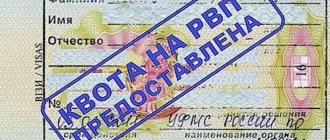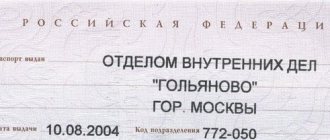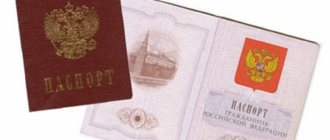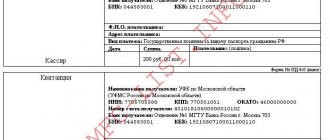How to get
Having learned about all the privileges and advantages that the document confers on its owner, many people wonder: how to get a diplomatic passport for yourself?
As we have already discussed above, the circle of persons to whom it is due due to their duty of service is very limited. Of course, you can try to make a career from law student to Supreme Judge. But this path is long, and the chance of achieving your goal is very small.
If you are not a government official and are not running for parliament, then marriage may be another chance. This is a very real and legal way to obtain a diplomatic passport.
As for the receipt procedure itself, everything is simple. Its registration and issuance is carried out by the Ministry of Foreign Affairs of the Russian Federation. Differences in receipt are observed already at the first stage of application. The fact is that it is not the citizen himself who contacts the appropriate service, but the organization sending him on a business trip. The document is not issued for permanent possession, but only for the duration of the trip. There are often cases when they can take quite a long period of time. It can be 5 or 7 years. In this case, an identity card is issued for the entire duration of stay, but not more than 10 years.
The organization that petitions the Ministry to issue it to a citizen knows exactly how to issue a diplomatic passport. The latter will need to collect a package of documents.
- Photo 3.5*4.5 cm. Requirements are the same as for other official documents. Light background, clear image, absence of sunglasses, decorative elements, wig, hats (if wearing is not dictated by religious beliefs).
- Questionnaire. In it, the applicant indicates basic information about himself. No corrections, inaccuracies or blank required fields are allowed.
- Registration card with photo. Its certification is within the authority of the director (head) of the organization.
- Certificates confirming payment of state fees. Since the passport is issued by the organization, it bears the entire cost of its production.
After the end of the business trip, the identity card is submitted to the Ministry. But there are a number of other circumstances under which it is necessary to transfer it to the Ministry of Foreign Affairs:
- expiration of the document;
- changes that have occurred in the citizen’s personal data;
- death of the owner;
- completion of labor activity in this organization, termination of the employment contract;
- ban on leaving the country due to certain circumstances;
- if the owner has changed citizenship;
- the passport was illegally transferred to third parties.
It provides a number of advantages when crossing international borders. Fulfilling official and state missions is associated with a number of difficulties. During military conflicts, diplomats must freely visit army headquarters. This could not have been done without special conditions and a series of agreements between countries. Therefore, this document is not superfluous. Only a limited number of people can have it, but now you know exactly how to get a diplomatic passport and whether you are eligible for it.
Russian diplomatic passport
A diplomatic passport of a citizen of the Russian Federation is one of the main documents identifying a citizen of the Russian Federation, which is used to cross the border of the Russian Federation. Issued only to certain categories of citizens.
Deadlines and documents
The document is issued for the duration of a business trip. If the date or period is not precisely determined, it is issued for 5 years. The Ministry of Foreign Policy is responsible for the extradition. An organization that sends an employee on a business trip applies for a diplomatic passport of a citizen of the Russian Federation.
The list of documents includes:
- a questionnaire containing all the basic information about the person receiving the passport;
- registration card with a photo certified by the director of the organization;
- 4 photographs 3.5x4.5 cm with a face image of at least 80% of the photo size;
- receipts for payment of all expenses.
The processing fee is paid by the company that sends its employee on a foreign trip.
After a business trip, the passport must be given to the organization within three days. The enterprise returns it to the ministry under the following conditions:
- Expired.
- Resident details have changed.
- The owner of the passport has died.
- The holder of the document was subject to a ban on leaving the country.
- The employment contract was terminated.
If the owner of a foreign passport gives it to strangers or ceases to be a citizen of the Russian Federation, the document is confiscated.
Diplomatic passport: benefits and privileges
According to the provisions of the Vienna Convention, these persons cannot be detained or arrested on the territory of other states.
In this case, special attention is paid to the fact that the receiving party must show the necessary respect for these persons and prevent any attack on their dignity and freedom. These provisions of the Convention are implemented in practice quite clearly.
Persons who enjoy diplomatic immunity have a huge number of benefits. In particular, they are exempt from the need to pay debts and loans, and can carry weapons. The contents of your luggage are not accessible to customs officers. If traffic rules are violated, the traffic police do not have the right to stop the diplomat's car. The ambassador's car has a special number plate. In any country in the world, police officers, as a rule, do not even try to stop such cars. They don't pay attention to them, even if the cars are parked in the center of the street. In principle, a diplomat may not even comply with traffic rules. His behavior on the road is limited only by his own sense of self-preservation.
Official and diplomatic passport - what is the difference between them?
Both official and diplomatic passports provide their holders with varying levels of diplomatic immunity. For example, in the USA the picture is as follows:
- An official passport is issued to a U.S. government official or employee traveling abroad to perform official duties ;
- A diplomatic passport is issued to a foreign service officer or a person holding diplomatic or comparable status because he or she is traveling abroad to perform diplomatic duties on behalf of the U.S. government.
Privileges of a diplomatic passport
The document serves as proof of identity when traveling abroad. Holders should be given special respect and the necessary assistance. But it is worth understanding that an identity card only confirms the status of its owner. That is, the privileges themselves arise due to the special attitude towards diplomats of various levels. Such rules were adopted back in 1961 by the Vienna Convention.
Therefore, it is advisable to say not that a passport gives privileges, but its owner, by virtue of his service (work), has them. And the document only confirms this. The list of main advantages looks like this.
- Being on the territory of a foreign state, he is guaranteed to be protected from unscheduled visits and inspections of his own residence and other property. Real estate and the surrounding area are inviolable. This means that the police and other structures do not have the right to enter its territory without permission.
- Visa-free visits to a number of countries. These include the Schengen states, India and some others. They do not go through customs control at the airport. Their luggage is not subject to search. In special cases, you may be asked to go through a metal detector. But in most cases, holders of a diplomatic passport pass through customs without hindrance.
- Personal integrity. You should not think that this and all the listed privileges allow you to behave with impunity and break the law. Such convenient conditions were developed and approved by the Vienna Convention for the smooth implementation of its main mission. This becomes vital if you are going to visit a military conflict zone or other hot spots.
- Inviolability of documents, correspondence and records. When performing a diplomatic mission in another country, a citizen can carry with him papers of special importance (and even containing state secrets). Their search is a gross violation and may threaten national security.
- Freedom in the ways of transmitting information. Holders of diplomatic passports can send encrypted and classified messages to their missions. However, the receiving state should not interfere with this.
- The right not to pay visa, customs and other fees and duties.
- Immunity from criminal and administrative liability. This point is still a cause of controversy and outright envy. Every now and then there are reports in the media about the abuse of this right. In fact, these are isolated cases. It is worth understanding that any citizen, while in another country on a diplomatic mission, can be arrested even for chewing chewing gum or photographing certain objects. In these and many other cases, holders of a diplomatic passport can avoid punishment and continue to fulfill their duty.
The presence of this document also imposes obligations on its owner: he must be honest and fulfill his official duties with dignity. Use the premises provided to him by the receiving party only for its intended purpose. Know and comply with the requirements and laws of the host country. They are prohibited from interfering in the affairs of a foreign state and abusing their official position.
Returning a document
A citizen must surrender his diplomatic passport, as stated above, within three days from the end of his business trip. The document is returned to the organization that sent it abroad. She, in turn, must hand over the diplomatic passport received from the citizen to the Ministry of Foreign Relations if:
- The document has expired.
- Owner information has changed.
- Circumstances have arisen due to which a person’s travel outside the state is restricted.
- The owner's appearance has changed significantly.
- The employment contract concluded between the traveler and his sending organization has expired.
- The owner of the document has died.
Basic moments
The execution of any document is carried out according to certain rules that are regulated by the legislation of the Russian Federation. The diplomatic passport is no exception.
What it is?
A diplomatic passport is a document that is used to confirm the identity of a citizen of the Russian Federation when crossing the border. It is issued only to certain categories of the population.
It can be obtained by persons who work in certain government agencies.
We will consider in more detail below the categories of the population that can obtain this document.
Why is it needed and what does it give?
A diplomatic passport of the Russian Federation allows you to travel outside the country on a business trip. This document can be used to confirm identity both when crossing the border of the Russian Federation and on the territory of other states.
Unlike a simple international passport, a passport for diplomatic travel is considered state property.
After returning from a business trip for which the document was issued, it is transferred to the organization that sent the person on a trip abroad.
According to the law, a diplomatic passport cannot be used to visit other states for personal purposes.
What does the cover look like and what color is it?
The diplomatic passport is issued in the form of a book with a green cover, which depicts the coat of arms of the Federation. The name of the document and the country in which it was issued is duplicated in Russian and English. All data in the diplomatic passport is also indicated in two languages.
On the Ministry of Foreign Affairs website you can find an official sample document for preliminary review.
What data is included in the document?
The same data is entered into it as in a simple international passport, namely:
- Owner's full name;
- gender and date of birth;
- citizenship;
- validity period and date of issue;
- the name of the structure that issued the document.
The diplomatic passport is biometric.
This implies the presence of a special chip where the owner’s basic biometric data is recorded.
How to get
The procedure for issuing a diplomatic passport differs significantly from issuing other identity documents abroad.
Unlike ordinary foreign passports, green ones are issued not by the migration service, but by the Ministry of Foreign Affairs. To obtain it, you need to have a certain status and be sent abroad for a specific purpose. It is not the citizen himself who petitions the ministry, but the organization that sends him.
As soon as the business trip ends, your passport must be returned within three days. If the mission is carried out for a long indefinite period of time, the passport can give its owner immunity for five or even ten years. The validity of the diplomatic passport of the top officials of the state lasts as long as they have their powers.
Differences from a regular passport
A diplomatic passport of a citizen of the Russian Federation differs in color from a regular international passport. It contains all the basic owner data:
- FULL NAME;
- full date of birth;
- gender;
- identification code;
- country of citizenship;
- date of registration;
- time of action;
- data of the organization that provided the document.
In addition to personal data, there is a record of a request from the Ministry of Foreign Affairs of the Russian Federation to all civil and military authorities of friendly states to allow the bearer of the passport to pass and provide assistance to him while crossing the border.
Diplomatic passport: what is it?
In terms of its functions, this identity card is similar to a regular foreign passport of a citizen of the Russian Federation. But that doesn't mean it's easy to get. This is due to a number of advantages that are given to the owners of such a document.
To make it clearer, we present the categories of persons to whom it is issued unconditionally.
- The president. The first person of the state makes frequent work and friendly trips to other countries. It would be strange if customs services required him to obtain a visa. After all, trips are often of an emergency nature, and besides, in 1–2 days he can cross the borders of different states several times.
- Members of the Federation Council. Their total number at the moment is 170 people.
- State Duma deputies. The number of deputy seats is 450.
- Members of the Government of the Russian Federation. This includes ministers, the chairman and vice-chairmen. As you can see, their number is also small.
- Judges. But not all. Only judges of the Supreme and Constitutional Court of the Russian Federation have the right to receive.
- Prosecutor General. Other employees of the Prosecutor General's Office do not have the right to possess this document.
- Chairman of the Central Bank.
- Diplomatic staff. The Vienna Convention gave them special immunity and the right to receive a diplomatic passport while on duty.
- Federal government officials.
If you do not find yourself in the list of these categories, then most likely you will not be able to obtain a diplomatic passport. There is, however, another option. It is possible to marry a resident who already has such an ID. Family members of a citizen holding a diplomatic passport also have the right to receive it. In all other cases, you will have to be content with the usual foreign currency.
It must be said that its owner can use this privileged document only for official purposes.
It must be returned after the trip. This is strictly controlled. The time for delivery is limited to three days. Therefore, you won’t be able to use it when traveling to any country for personal purposes (recreation, tourism).
Having dealt with the circle of happy owners, you need to understand what advantages the treasured little book provides.
Owner details
Based on the marks in the document, the citizen’s identity is fully identified. The diplomatic passport contains:
- Last name, first name, patronymic of the citizen;
- Date, month, year of birth;
- Gender, personal code;
- Photo;
- TIN certificate data;
- Nationality of a diplomat;
- Date of receipt of the certificate;
- Expiration date;
- Name of the issuing institution;
- Border crossing records;
- Information about purchased visas.
- Information about the position held.
Children of the resident under 14 years of age are included in the diplomatic certificate. When the child is already 6 years old, the record is supplemented with a photograph. An authorized employee of the Ministry of Foreign Affairs certifies the pasted photographs with a signature and affixes a seal.
In addition to the TIN data, the information is similar to the information in a general civil and foreign passport. It is possible to record biometric data on microcircuits using modern technologies. The resident's wife or husband includes similar information in the document.
Information for foreign citizens
What document can replace a passport for a person with citizenship of another state? If a foreigner decides to move to Russia, he is required to have a document confirming his identity. At the initial stage, this is a temporary residence permit (TRP). Another document for foreigners is a residence permit (residence permit). Citizens of some countries must have a return certificate. What else in Russia can confirm the identity of a foreigner? Such papers include: a refugee certificate and a certificate of registration of an application for refugee status.








